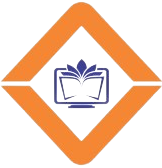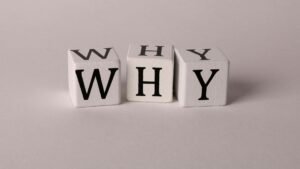![]()
As students, we would’ve all asked this question while at school. Why? Why do we have to learn algebra? Why learn about French Revolution? Why learn the types of conditional clauses? Why does one have to learn that the left ventricle is located below the left atrium (separated by the mitral valve, of course!)?
These questions may be asked silently and dealt with covertly, convincing oneself that this is part & parcel of the school experience; learn the things that someone, or some board or panel has deemed appropriate and required, for one to know at a specific point of their school life. Whether the child is interested in it, or sees any relevance with it, is immaterial for the most part. When & if this question is ever asked out aloud by the student, God forbid, then it is up to the teacher to give a reassuring response. What if the teacher doesn’t know why? What if the teacher is teaching only because it is in the textbook? What if the teacher is teaching only because that’s what he/she was taught while at school? Only because he/she has to…And in my experience these are the very reasons many teachers give when asked why…
We have always based all of our discussions & decisions at our school based on “why do we do what we do”. So when it came to the content of what we teach, we started looking into why we are selectively teaching our students certain concepts at each grade level, when the world is vast & learning is unlimited. There were points raised about us being a CBSE school, we fall under the board’s regulations & its prescribed NCERT textbooks and ensuring our children gain the knowledge needed to perform competitively in the board exams & so on. So, with the understanding of the slightly constricted framework in which we are placed, we asked ourselves if we could work on optimising & maximising the learning experiences for our students at least through the exploration of WHY.
If a child can see the purpose & reasoning behind what it is that he/she is learning rather than doing so because the teachers/parents may be forcing him to, the dynamics of the learning process may change. Even though the child can’t choose what he is learning in the school environment, if he can at least understand the meaning behind it and have the autonomy in how he learns & process it, then we make the learning process much more meaningful. When one sees how something applies to one’s life, to one’s world, learning becomes personal, relevant and possibly joyful! Our humble effort to just this has been happening in our school for some time now…
Ever since online classes began last April, we decided on having minimal screen time (about an hour & a half of classes per day for most grades; KG a little less & 9-11 a little more) & focused on self-directed learning with real-world application tasks. We also decided not to have lecture-style classes, but our synchronous online learning happens based on the flipped class model- students learn at their own pace & complete their work independently and come to class to further their understanding of the concept & to ask questions in their doubtful areas. We also decided to focus on one subject per day to enable children to explore it deeply at their own pace. This has worked beautifully instead of the 40 min/subject, 4-hr online class, teacher-centered, teach-then-give-homework model.
Each of our learning day begins with a ‘Why’ session in the morning. Teachers & students come together to discuss why we will be learning what we will be learning for the day. This has proved valuable not just for our students, but for our teachers also. This is an essential part of our teachers’ lesson plan and many tell me that it’s their most difficult part. New & experienced teachers tell me that they’ve never had to think about this, ever. KG teachers need to know why students are asked to color. Grade 11 teachers are thinking about why their students need to learn polynomials. And many times, even when the teachers go in with an understanding of why, it is the students who give them much more well-founded, logical reasoning to the why!
I read this quote recently which further reiterated what it is that we are trying to do:
“Education is not memorizing that Hitler killed 6 million Jews. Education is understanding how millions of ordinary Germans were convinced that it was required.“
-Unknown
Doesn’t that quote make a very powerful assertion? Shouldn’t we, as educators, wake up & really question what it is that we are teaching & learning? We can’t be mere transferors of knowledge anymore. We need to dig deep, ask a lot of questions- to ourselves & our students, & enable our students to think beyond the textbooks and to always go one step further than what has been learned in the classroom. Asking ‘why’ is one step towards that goal.


Recent Comments